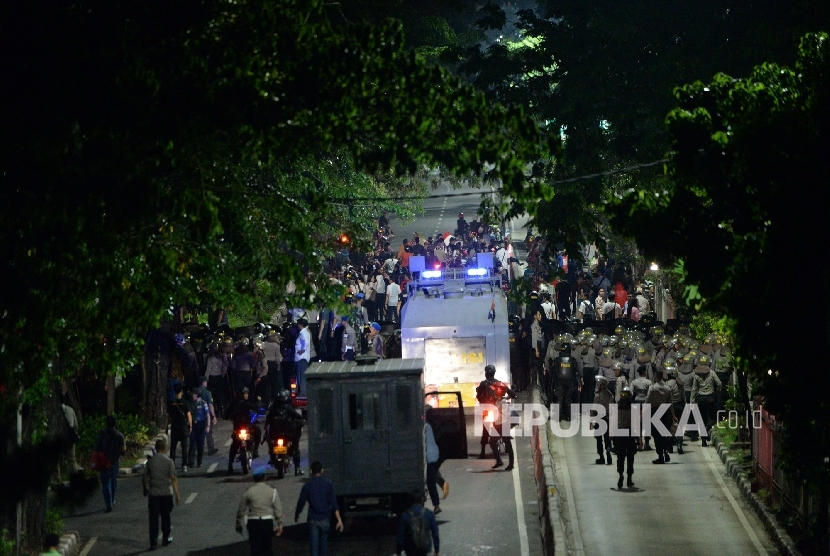REPUBLIKA.CO.ID, JAKARTA -- Supporters of Basuki Tjahaja Purnama or Ahok kept on trying to suspend the detention. The Chairman of Indonesian Muslim Advocate Alliance, Al Katiri said it would be useless.
"Why? Because the verdict and the order of detention was integrated. It can be differentiate but cannot be separated," said al-Katiri when contacted by Republika.co.id on Friday (May 12).
According to Al Katiri, when the Court made its decision, the authority stuck to the panel of judges as mentioned in the Article 193 verse 2 of the Criminal Code.
There were two options for taken by the judges after finishing the examination process.
The first option, when Ahok was not detained, the judges might order him to be detained if it met the requirement of Article 21 of the Criminal Code and if there was sufficial reason. This had been taken by the judges when making the decision for Ahok.
The second option, when Ahok was detained, the judges might decide to detained or to release him when he was proven to be guilty.
The optional order was insisted by Article 197 of the Criminal Code. In verse 1 letter k, it was mentioned that the defendant might be detained or released. Unfulfilment to the provision would impact the verdict to be "null and void" (article 197 verse 2 of the Ceiminal Code).
"The norm of law in article 197 was imperative, it has judicial consequences as automatically void," said al-Katiri.
According to A -Katiri, null and void meant the decision was never existed and legally null and void. When it happened, the case could not be executed.
Al Katiri insisted that the order by the court to detained Ahok should be interpreted as a mandatory law and it cannot be neglected. Therefore, panels of judges had implemented appropriate norm of law. The fact was that Ahok was never been detained. Therefore, when he got the verdict, the order of detention was read.
Supreme Court's decision No. 169 K/Pid/1988 was null and void as it did not meet the article 197 verse 1 letter k of the Criminal Code. The immediate order of detention (uitvoerbarr bij voorrad, in criminal law), had an existing power although there were appeal and cassation.
"Based on the explanation, suspend of detention could not be accepted. Suspension only available in investigation process to the trial (article 31 verse 1 of the Criminal Code)," said him.
Also read: GNPF MUI comments on UN Human Rights Asia's tweet regarding Ahok imprisonment
Al Katiri said the verdict and order of detention should be accepted as a reality. It had been a principle that a verdict should be right (res judicata pro verivate habetur) until there was higher decision to void it.
Al Katiri said the panels of judges know the presence of Constitutional Court's decision No. 69/PUU-X/2012 stated that the verdict did not mentioned article 197 verse 1 letter k of the Criminal Code was null and void. The court also voided the requirement of letter k in article 197 verse 2 of the Criminal Code.
But, the mentioning of article 197 verse 1 letter k of the Criminal Code in Ahok's verdict aimed at strengthening the article 21 of the Criminal Code, namely a worry that the defendant would run away or repeat his action.
Al Katiri said order of detention was not contrary to the Constitutional Court's decision.
"The effort to appeal and cassation was not targeted he detention, but the verdict," he said.



